| By Marjorie Burris |  |
| Issue #16 • July/August, 1992 |
“Just how long are you going to be able to live in the backwoods like that?” my friend, Pat, asked. “You’re not getting any younger, you know!”
I’ve known Pat for 30 years, and although she hasn’t any tact to spare, she always makes me think. How long can we expect to live this special life-style which takes so much energy and endurance?
I remember when my grandparents, who lived on a farm, cut their own wood, grew their own food, and tended their own meat and milk cattle. When they became feeble in their eighties, they had to move to a little house in a small town. But they stayed on the farm as long as they were able, and to their dying day they never lost that independent but appreciative spirit honed by a life of living with the land and the elements.
Pat’s question made me make an assessment of our life in the backwoods.
Why are we here?
We did not move to the backwoods to make a statement, join a movement, or drop out of society. In fact, in 1970 when we bought the “ranch” (a misnomer, but being westerners, we call it that) we had no inkling that there was an effort to make a “return to the land.”
We had three reasons for wanting a place in the backwoods: the first, and at the time, the most important, was to have a place where we could teach our three boys how to do manual labor, how to solve problems, and how to rely on their own skills and judgment.
Knowing how to do things is empowerment. The feeling of being able, a sense of self worth, the satisfaction of seeing a job well done and knowing you have done it these qualities are invaluable. And our sons did learn these things on our backwoods land. I’d like to say here, though, that we did not immediately move onto the ranch when we first bought it. My husband and I kept our jobs in the city so we could pay for the land, make needed extensive repairs, and buy some equipment. We also accumulated a small savings which would let us have at least some steady income when we finally made our move to the country.
For 10 years we came to the ranch and worked as a family on our days off and on our vacations. I took a leave of absence from my nursing job for a few summers and the boys and I stayed at the ranch. This was especially good because my sons learned responsibility by running the ranch and being guardians for momma.

On the very day our youngest son graduated from high school, my husband and I moved to the ranch. We felt we had waited long enough. Now, all three of our children bring their children to the ranch at every opportunity so they can pass on the legacy of backwoods values.
The second reason for wanting a place in the backwoods was to have a place of comparative security. I say comparative because no place on this earth is totally secure or even peaceful all the time. But if the economy fails, we do at least have a place where we can build shelter for the children and raise a great deal of our own food. In these unstable times our sons have the security of knowing if they lose their jobs they have a place to come to with plenty of room for all and plenty to do!
The third reason we are here is because we like the solitude. It is impossible to go through life without jostling someone or being jostled, but at least out here in the wilderness there aren’t so many elbows to scrape against.
Not that living in the backwoods gives us complete freedom. Here we are subject to the laws of the land and the weather. We don’t plant a garden on a rock even if we do like that spot, but we plant where soil, sun, wind, and drainage do their thing.
We live by the weather and the seasons. We cut our firewood in July when the snow and mud doesn’t hamper, even if we do have more time in the winter to cut wood.
But, all in all, it is much more satisfying to us to live in tune with nature than it is to live where our freedom ends because someone else’s nose begins.
What are we doing here?
Well, for one thing, we are growing older. We’ve lived on the ranch since 1979. My husband is 65 and I’m 60. We’ve learned the joy of living simply within a small budget.
We’ve learned what is really necessary. And we’ve learned to be thankful for basic pleasures the soothing of hot bath water, the taste of good fresh vegetables, the smell of fragrant apple blossoms, watching the grace of an eagle as it slowly spirals upward, upward out of sight.
Now, we are learning how to cope with the limitations brought on by one majestic sunrise followed by a glorious sunset, by yet another sunrise, sunset, sunrise, sunset to echo that haunting song in Fiddler on the Roof.
In our sixties, we aren’t really old, but as my friend said, we aren’t any younger, either. We do notice that we can’t work like we did even 10 years ago. Even though we are basically healthy, we don’t have the strength we used to have. Realizing this, we are taking a few steps to enable us to stay on the ranch as long as possible. These include among other things:
1. We have cut back on the number and kinds of animals we have to care for. The Nearings were correct when they said you were slaves to your animals. Pigs and cattle are relatively easy for us to care for because the pigs are ham and bacon before winter sets in, and cattle fare well with just a little shelter during bad weather. We no longer raise milk cows, chickens, geese, ducks or goats. Caring for these use our energy, which we need to do essential jobs.
2. We set aside a couple of days a month to fix little things that annoy like the screen door that hooks after us and locks us out when we go outside. Little things, but many little things become overwhelming and make you feel unable to cope.
3. I no longer feel obliged to serve a meal to everyone who wants to come and visit us. We live a long way out in the country and it is usually lunch time before our city friends make it to our house. I used to drop what I was doing and scurry around and “fix a bite to eat” for anyone who came.
Now, I tell everyone we have a lovely picnic area and they are free to use it. If people show up unexpectedly, I tell them they weren’t expected and I’m not prepared. Our visitors are learning to bring their own picnic and I have cut down on a lot of stress. Because I am by nature a hospitable person, this has been hard for me to do.
4. When strength is limited, we find we are easily frustrated, and tasks seem harder. We try not to put unreal time limits on a job and we try to plan our essential jobs to be done well before a sudden turn in the weather puts pressure on us.
We have made a yearly calendar and written in each month the “must do” jobs for that month. For example: May buy baby pigs and calves. Till and plant garden. Turn on water tank in forest. November finish picking apples before freezing, make cider, prune orchard. Butcher and make soap. Till garden and sow with cover crop. Planning and writing it down helps us not to get sidetracked with things that are “nice” but not necessary.
5. We have become reconciled to the fact that our old homestead will never be a show place with everything freshly painted and all in good repair. We are only grateful that we are comfortable, the roof doesn’t leak (for now), and the fire is warm on a cold winter day. A thankful heart makes the common things take on a golden patina.
6. We both studied diligently and both got a ham radio license. Then we spent some hard earned money for some adequate equipment so we can have communications with the outside world. Our sons in Phoenix insist that we contact them daily just to let them know we are all right.
In case of an emergency, we can dial 911 on the autopatch and get paramedic help almost as quickly as we could if we lived in a metropolitan area. This has given our family, and us, great peace of mind. We are isolated yet we aren’t. Now that you can get a ham radio license without knowing Morse code, it is easy to do. I would urge any backwoods person to look into ham radio.
Where are we going?
When Pat asked me that abrupt question, I looked her in the eye and asked, “How long are you going to be able to live in your big house in the city and take care of it?” She bit her lip and murmured, “I don’t know.” “That’s my answer, too,” I told her.
True, it is much easier to turn up a thermostat than it is to cut your firewood and keep a fire going, but I think your attitude has a lot to do about what you can do wherever you live. We plan to live on the ranch just as long as we possibly can. We will gradually cut back on our physical work, I’m sure, but perhaps our grandsons will be able to help us as we get older.
Eventually, though, this, too, shall pass away, and we may have to move to a small house in town. I hope if that time comes that I can learn to be in a receiving mode just enough to make it easier for those whose lot it is to care for an old independent minded woman. Life in the backwoods is a good life. We have savored the good times and have even learned to laugh about almost all the bad times. I think the poet William Cullen Bryant, when he wrote Thanatopsis almost 200 years ago, said it well when he concluded:
“So live, that when thy summons
come to join
The innumerable caravan,
which moves
To that mysterious realm, where
each shall take
His chamber in the silent halls
of death,
Thou go not, like the quarry-
slave at night,
Scourged to his dungeon, but,
sustained and soothed
By an unfaltering trust, ap-
proach thy grave,
Like one who wraps the drapery
of his couch
About him, and lies down to
pleasant dreams.”


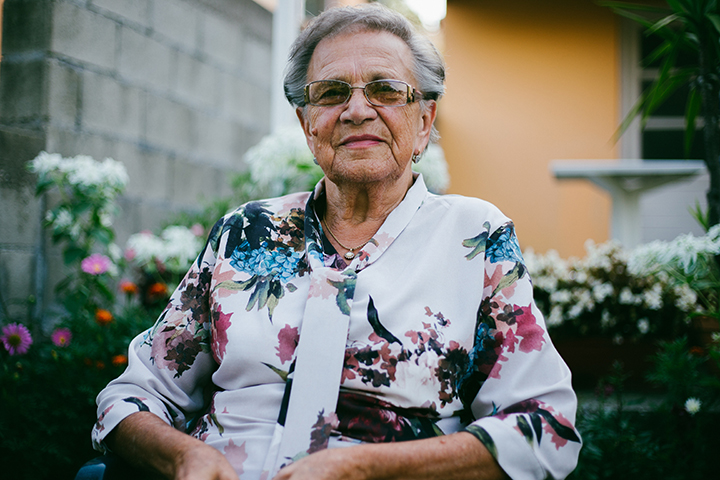

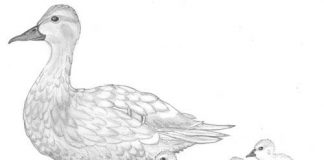




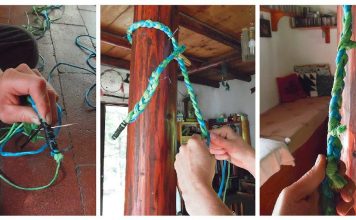

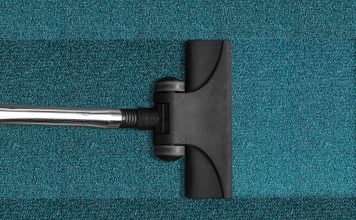
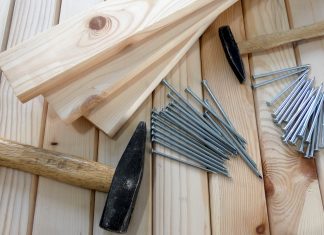

Love you and Hubert.
Thank you for the encouraging words. I am 77 and my husband is 74. We have noticed we are not as strong, and do not do as much as previously, but still doing fine. I help my husband with cutting and splitting wood, he does most of it but I can stack it.I garden in raised beds so they don’t have to be tilled. Still seems easy to me. I do some canning, not as much as I did, because we don’t eat it fast enough. We have quit stressing about appearances. We are in the country, so what if we don’t have a lawn! (Moss killed it)
We don’t prune the apple trees any more. they are getting huge, but we still have way more apples than we can use. The deer enjoy them. We want to live here as long as we can, than accept changes when the time comes. I know people in their 90’s who live alone!
Really enjoyed reading this.